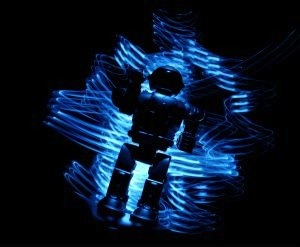
Sounds like science fiction, but it’s not. In fact, it seems to be an ongoing issue. And, it shouldn’t be… for a lot of reasons. We thought it was worthwhile to re-run our original article and video that we posted on this subject in addition to some new comments and comparisons. The main thing to keep in mind is that the man vs. machine in the courtroom issue is NOT about going paperless, or green. It’s about accuracy, and the nuances that only a human being can bring to the table. We can’t stress enough that court reporters take great pride in providing accurate records and also in the ability to be versatile and timely in reacting to situations, especially when machines break down!
Let’s do a quick comparison between the two.
Accuracy: Humans – All NCRA approved court reporting schools require an accuracy level of 95% when taking high-speed dictations before allowing a student to graduate. Machines – No one seems to want to give out any details about the machine accuracy rate. In fact, some are saying that they’ve found the accuracy level to be more in the 70 to 80% range.
Professional: Humans – When you hire a court reporter, you are hiring a professional, unbiased guardian of the record whose main accountability is to ensure a verbatim record is captured. Machines – I haven’t met a machine who cares yet!
Reliability: Humans – Regardless of power outages or equipment failure, the court reporter can quickly and efficiently proceed by using a battery equipment alternative or by using their steno machines in manual mode. Machines – Sorry, can’t do!
Time: Humans – Court reporters have a distinct advantage of having the availability to view the transcript real time on their screens or print a hard-copy from their computers. If a section needs to be “read-back”, no problem, the court reporter is trained to find the exact location quickly and efficiently. Machines – If a playback is required, someone in the courtroom (most likely a recording technician) will have to find the right spot for the read-back. This may or may not be accomplished quickly.
Cost: Humans – You get a professionally trained court reporter who can accommodate your needs in a variety of ways – realtime viewing, hard copy, CD, etc. at a pre-agreed price. Machines – Did you know that you will still have to pay someone to transcribe the second-hand sound on the digital recording if you want more than just an audio or video tape.
Education: Humans – Education is a top priority with court reporters. The average length of training is for 44 months – that’s almost 4 years. They are professional listeners trained in courtroom procedures, legal procedure, notary law, and vocabulary to name a few. Machines – Machines record whatever noise is happening in the environment without discernment -shuffling paper, chairs squeaking, people coughing or talking. Machines need a person to play back the sound.
Remember that when you are comparing “man vs. machine”, you’re not comparing apples to apples. In reality you’re comparing apples to oranges – they are as different as different can be!
When you use a “human” court reporter, you are dealing with one person – the same person who sits in the courtroom is the same person who will be transcribing the proceedings. They will automatically have recall of nuances that occurred throughout the deposition. With machines, you never know who is going to be doing the transcribing. And, since they weren’t part of the proceedings, they won’t have any recall.
Here’s a recap of our original article we did on the subject. Some time ago we posted a video of Lisa Michaels (President of the Deposition Reporters Association of California) responding to Governor Schwarzenneger’s comments about replacing live court reporters with machines to help save money in order to help reduce the California state debt.
This is not a “one state” issue – it’s an issue that affects all of us in the legal profession and it’s been spreading to other states. We owe it to ourselves and the legal profession to stay on top of this issue and to take action if needed.
Following is another video. This one is from the official reporters of the Superior Court of King County, WA who are about to become extinct and replaced by machines. It goes into some very important detail about some of the problems courts are facing with ER (electronic recording) devices, including inaudible and indecipherable transcripts as well as equipment failure, timeliness of transcripts and failed court cases because of inadequate records. Texas, New Mexico, Hawaii, and Nevada switched from “live” court reporters to electronic recording devices. Did it work out well for them? Not at all. In fact, they are, or already have, switched back to “live” court reporters.
Bottom line is that machines are just machines and sometimes they fail or fall short of expectations. There is still a lot to be said for having a trained, dedicated, impartial, intelligent person representing the court and being the keeper of the official record. But then, I’m preaching to the choir, aren’t I!
Please watch this video, and leave a comment!
